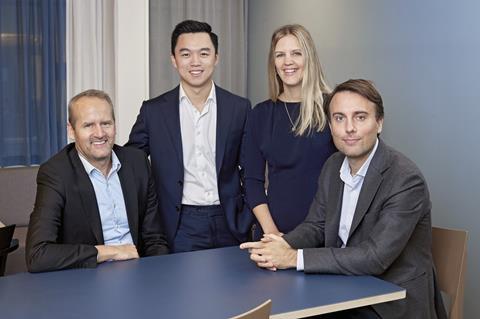Sweden’s AP4 has rejigged its transportation equities investments, slashing its holding of these stocks by three quarters while maintaining the same degree of exposure, in the latest in a series of asset allocation changes devised by a sustainability-led fundamental analysis team.
The Stockholm-based fund, which manages SEK460bn (€40.6bn) of state pensions buffer capital, said yesterday that transport was the latest sector looked at by its team for fundamental company selection in resource-intensive sectors – a five-strong team implementing AP4’s net-zero strategy.
Pontus Lidbrink, head of thematic strategies and implementation, said: “We work from a global world index and use quantitative analysis to identify companies that are associated with sustainability risks in climate and the environment.”
Using forward-looking data on companies’ ability to handle carbon pricing, AP4 screens out the “worst” companies in the portfolio, he said.
By combining that quantitative approach with fundamental analysis, the buffer fund said it can better identify firms able to contribute to the transition to a sustainable society, and also act as active owners.

Having previously worked on the energy sector, power companies and the raw materials sector, the fundamental thematic equity team came up with a selection of companies they considered to be exposed to structural trends and with credible sustainability profiles, according to AP4.
Fredrik Skoglund, portfolio manager in charge of fundamental selection in the transport sector, said: “This means that we have opted out of airlines, traditional companies in truck freight and capital-intensive companies in sea freight and instead invest in American railways and niche players in truck freight.”
He told IPE that as a result, AP4 had reduced the number of companies in the portfolio from 55 to 14 within the transportation industry, while maintaining roughly the same allocation to the underlying sector. AP4’s transportation asset allocation change was implemented at the end of 2022, he added.
Exposure to airlines and shipping companies was reduced in favour of railroads, AP4 said, which show higher profitability and lower cyclicality, and also represent a more sustainable means of transport.
“Exposure to standardised truck freight has also decreased in favour of more niche players situated higher up in the value chain,” Skoglund told IPE.
Following last autumn’s work on the transport sector, the fundamental analysis team is currently looking at the automobile and components industries, he said – sectors he said would play a key role in the transformation to a more sustainable future.
AP4’s industry and sector-specific strategies apply, with some minor exemptions, to all of its internally-managed portfolios and cover the MSCI World universe –i.e. the buffer fund’s entire global equities allocation except for emerging markets.
Read the digital edition of IPE’s latest magazine























